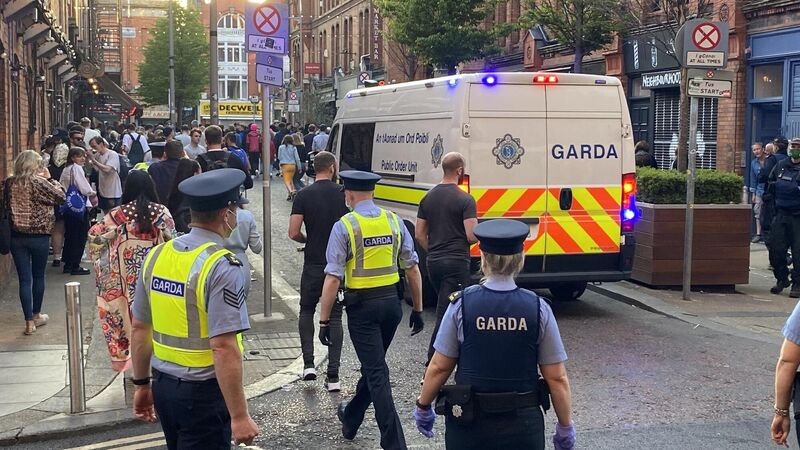Dublin street looked like All-Ireland Final day says Dr Holohan in defence of comments

Members of Gardai enforce coronavirus restrictons and move people on from South William street, Dublin at the weekend. Picture: Niall Carson/PA Wire
The chief medical officer (CMO) has said the scenes in Dublin city centre last weekend were like something from before an All-Ireland Final.
Dr Tony Holohan expressed his shock at the large crowds who gathered in the South William Street area on Saturday.










